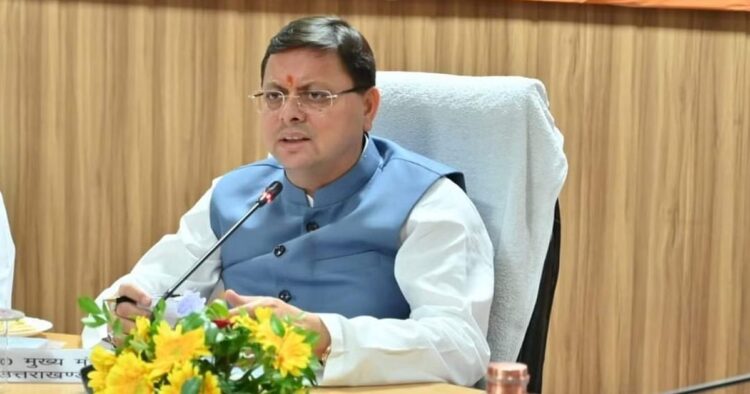In a significant development, Uttarakhand Chief Minister Pushkar Singh Dhami has revealed that the Uniform Civil Code (UCC) Committee, formed in response to a promise made during the 2022 assembly elections, has successfully concluded its work. The committee is set to deliver its report on February 2, marking a crucial step toward the implementation of the Uniform Civil Code in the state.
During an interview with ANI, CM Dhami expressed the government’s commitment to fulfilling its pledge to the people of Uttarakhand. The UCC Committee, established on May 27, 2022, under the leadership of Justice Ranjana Prakash Desai, has been tasked with formulating recommendations for the implementation of a Uniform Civil Code, covering various aspects such as marriage, inheritance, and adoption.
Once the report is submitted on February 2, the next steps involve bringing it before the Cabinet for review. Subsequently, the government plans to take action in the state assembly to enact the Uniform Civil Code Act, making it an integral part of the state’s legal framework.
The concept of a Uniform Civil Code, as outlined in Article 44 of the Constitution of India, aims to establish a consistent set of laws applicable across the entire country, addressing matters related to personal laws and practices. The UCC has been a topic of considerable debate and discussion, gaining prominence in the public discourse over the past few years.
The Prime Minister of Bharat, Narendra Modi, had emphasized the need for a Uniform Civil Code during a speech in Bhopal last year. He argued that the country cannot operate under two different legal systems and asserted that implementing a Uniform Civil Code aligns with the foundational principles and ideals of the Constitution. PM Modi highlighted the importance of equal rights and referred to the Supreme Court’s support for the implementation of the UCC.
As the report from the UCC Committee is eagerly awaited, the move towards a Uniform Civil Code in Uttarakhand reflects the government’s commitment to addressing legal and social complexities, fostering equality, and streamlining legal practices within the state.

















Comments